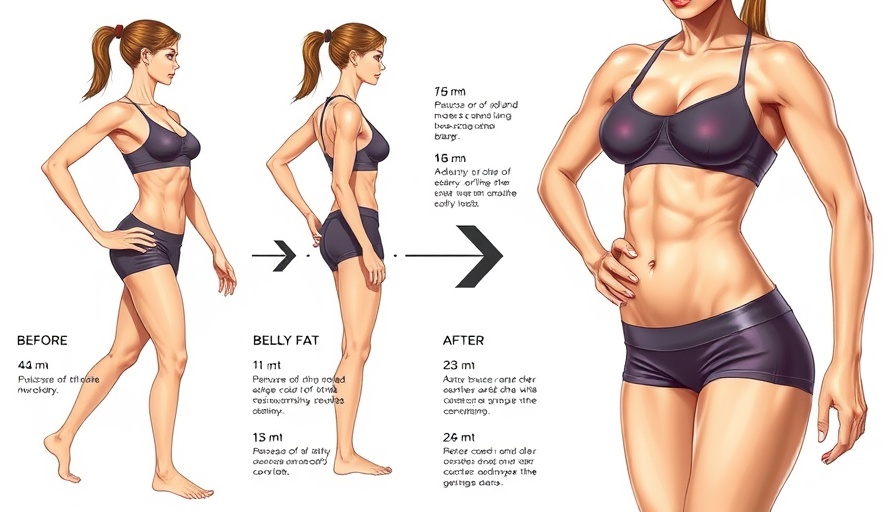
Why Recovery Matters in the Fitness Journey
In the highly competitive world of fitness, many gym owners and trainers might focus primarily on exercise routines, new workout technology, and dietary plans. However, one critical aspect that tends to be overlooked is the importance of recovery after intense workouts. Just as every athlete needs to excel, they also need to recuperate properly to sustain their performance and avoid injuries. Recovery not only helps maintain muscle function and energy levels but can also significantly amplify workout results.
Nature’s Energy Boost: Vitamin D and Nutrition
A balanced post-workout meal is vital for recovery. Nutrient-dense foods rich in protein and carbohydrates aid in replenishing glycogen stores and rebuilding muscles. For gym owners, emphasizing this principle with clients can improve their results and satisfaction. Portable snack options or nutrition packs can be beneficial to have on hand for clients who need a quick refuel post-workout. Think grilled chicken wraps with a side of mixed veggies, or for those short on time, smoothies packed with natural protein can serve as efficient alternatives.
The Role of Hydration: Not Just Water
Dehydration can silently disrupt a person’s recovery process. As sweat is lost during workouts, optimal hydration remains paramount.
Encourage gym-goers to mix it up with electrolyte drinks, especially after long or high-intensity sessions. This approach can help replace lost minerals, thereby improving muscle function and energy levels. Beyond water, coconut water is a fantastic alternative, providing natural electrolytes without excessive sugars found in many sports drinks.
Sleep: The Unsung Hero of Recovery
Sleep is a key component of recovery that cannot be neglected. Quality sleep not only enhances physical recovery but also ensures mental sharpness and motivation. Gym owners should communicate the advantages of good sleep hygiene. Suggestions such as establishing a consistent bedtime, creating a relaxing sleep environment, and limiting screen time before sleep can substantially improve overall recovery and performance.
Listening to Your Body’s Signals
The journey to optimal recovery involves tuning in to one’s own body. Encourage clients to recognize signs such as lingering fatigue, soreness, or decreased performance. They should treat these signals as warnings, possibly indicating the need for more rest or adjustments to their training plans.
Supporting Recovery with Light Activity
Not all rest days necessitate complete inactivity—introducing light activities can enhance recovery without placing excess stress on the body. Encourage clients to adopt yoga, stretching, or light walking as part of their active recovery. These low-impact options can promote blood flow, facilitating muscle repair and keeping the body engaged in a restorative state.
Why Compression Gear Is Worth the Investment
Compression gear is gaining popularity for a reason: it can support muscle recovery and reduce soreness through improved circulation. As a gym owner, sharing insights about such ancillary tools with clients can boost not only their recovery but also their overall workout experience. Stocking a variety of compression garments in your gym could even become an additional revenue source, while also enhancing member satisfaction.
The Long-Term Benefits of Consistency
Building a consistent recovery routine is key to increasing long-term fitness success. It’s crucial to frame recovery as a non-negotiable element of workout regimens rather than an afterthought. Encourage clients to prioritize recovery just as they would their workouts, helping them understand that consistent recovery leads to elevated performance levels.
Final Thoughts and Implementation Strategies
As gym owners, embedding recovery practices into your training and support methodologies can significantly enhance client outcomes. Providing educational materials and facilitating discussions around recovery strategies can foster a supportive community focused not just on physical exertion, but also on nurturing and caring for their bodies. Remember, a well-rounded fitness approach is the key to long-lasting success, one that combines overcoming challenges in the gym with effective recovery methods.
 Add Row
Add Row  Add
Add 




Write A Comment